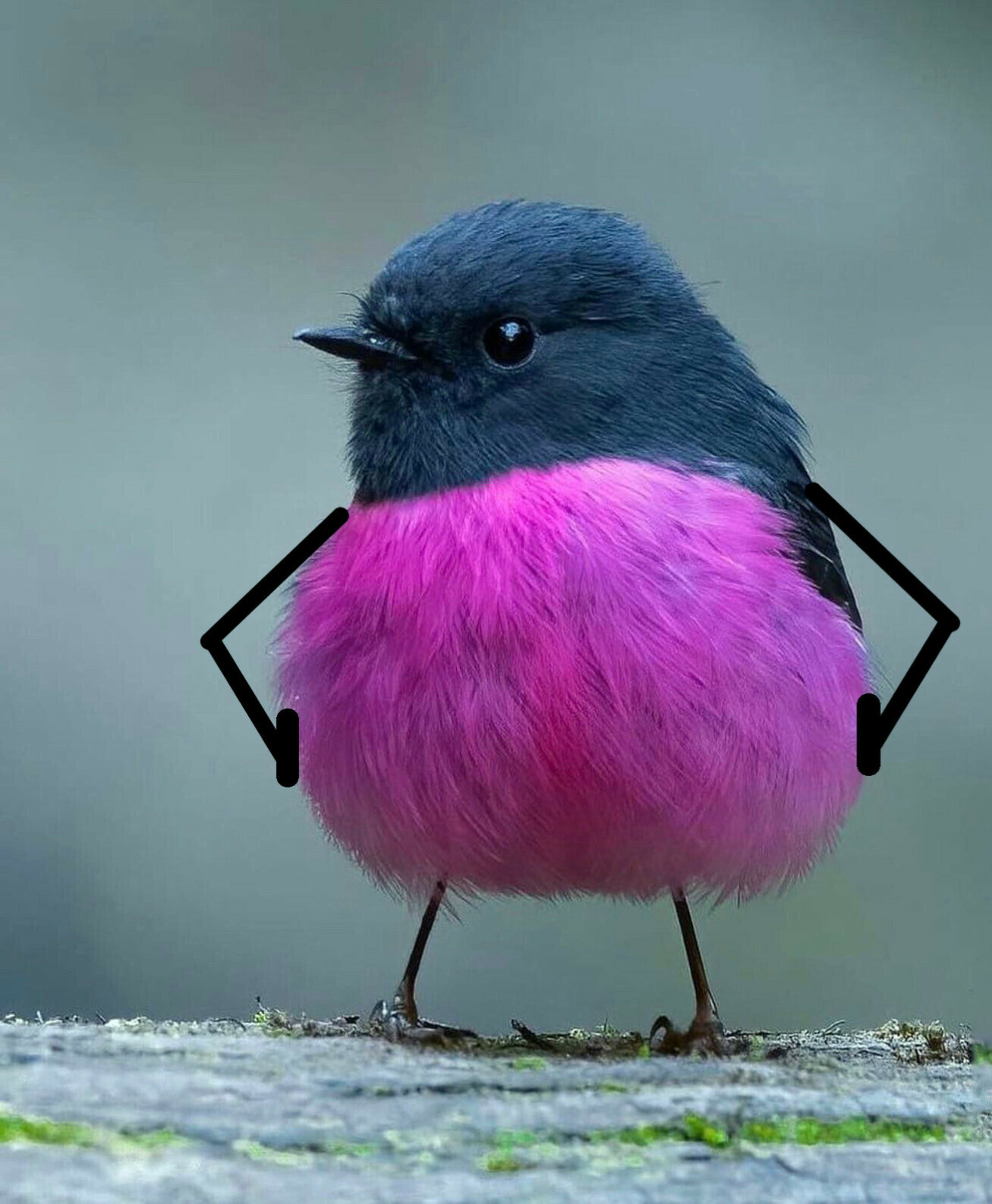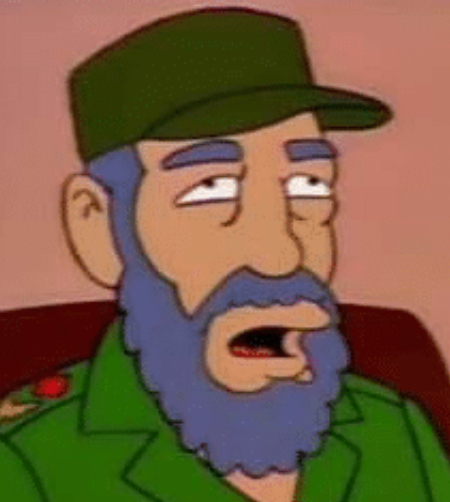Hop in, comrades, we are reading Capital Volumes I-III this year, and we will every year until Communism is achieved. (Volume IV, often published under the title Theories of Surplus Value, will not be included, but comrades are welcome to set up other bookclubs.) This works out to about 6½ pages a day for a year, 46 pages a week.
I’ll post the readings at the start of each week and @mention anybody interested. Let me know if you want to be added or removed.
31 members! Excited to see this taking off, and proud of us for making it thus far. We have now read ¹⁄₁₈ of Volume I. The first three weeks are the densest, onwards it’s smooth sailing and only needs about 20 minutes a day. We’re gonna make it, comrades!
Week 2, Jan 8-14, we are reading Volume 1, Chapter 2 & Chapter 3 Sections 1 & 2.
Discuss the week’s reading in the comments.
Use any translation/edition you like. Marxists.org has the Moore and Aveling translation in various file formats including epub and PDF: https://www.marxists.org/archive/marx/works/1867-c1/
Ben Fowkes translation, PDF: https://libgen.is/book/index.php?md5=AA342398FDEC44DFA0E732357783FD48
(Unsure about the quality of the Reitter translation, I’d love to see some input on it as it’s the newest one)
AernaLingus says: I noticed that the linked copy of the Fowkes translation doesn’t have bookmarks, so I took the liberty of adding them myself. You can either download my version with the bookmarks added or if you’re a bit paranoid (can’t blame ya) and don’t mind some light command line work you can use the same simple script that I did with my formatted plaintext bookmarks to take the PDF from libgen and add the bookmarks yourself. Also, please let me know if you spot any errors with the bookmarks so I can fix them!
Resources
(These are not expected reading, these are here to help you if you so choose)
-
Harvey’s guide to reading it: https://www.davidharvey.org/media/Intro_A_Companion_to_Marxs_Capital.pdf
-
A University of Warwick guide to reading it: https://warwick.ac.uk/fac/arts/english/currentstudents/postgraduate/masters/modules/worldlitworldsystems/hotr.marxs_capital.untilp72.pdf
-
Reading Capital with Comrades: A Liberation School podcast series - https://www.liberationschool.org/reading-capital-with-comrades-podcast/
2024 Archived Discussions
If you want to dig back into older discussions, this is an excellent way to do so.
Archives: Week 1 – Week 2 – Week 3 – Week 4 – Week 5 – Week 6 – Week 7 – Week 8 – Week 9 – Week 10 – Week 11 – Week 12 – Week 13 – Week 14 – Week 15 – Week 16 – Week 17 – Week 18 – Week 19 – Week 20 – Week 21 – Week 22 – Week 23 – Week 24 – Week 25 – Week 26 – Week 27 – Week 28 – Week 29 – Week 30 – Week 31 – Week 32 – Week 33 – Week 34 – Week 35 – Week 36 – Week 37 – Week 38 – Week 39 – Week 40 – Week 41 – Week 42 – Week 43 – Week 44 – Week 45 – Week 46 – Week 47 – Week 48 – Week 49 – Week 50 – Week 51 – Week 52
2025 Archived Discussions
Just joining us? You can use the archives below to help you reading up to where the group is. There is another reading group on a different schedule at https://lemmygrad.ml/c/genzhou (federated at [email protected] ) (Note: Seems to be on hiatus for now) which may fit your schedule better. The idea is for the bookclub to repeat annually, so there’s always next year.
I’ve decided to make notes from my reading so I can return to it later. Might have the spoons and time to do this every week, might not.
I have uploaded my notes from this week as a pdf to a file sharing site in case they might be useful for others. You can download the file from here.
It includes my comments in cursive and the bullet points are this weeks reading condensed to what I felt to be key points. I have bolded bits that I found to be especially important.
Adding that while reading these first chapters and especially the parts about money the Marx quote that has been playing in my head over and over is this one:
“Political economy, this science of wealth, is therefore simultaneously the science of renunciation, of want, of saving and it actually reaches the point where it spares man the need of either fresh air or physical exercise. This science of marvellous industry is simultaneously the science of asceticism, and its true ideal is the ascetic but extortionate miser and the ascetic but productive slave. Its moral ideal is the worker who takes part of his wages to the savings-bank, and it has even found ready-made a servile art which embodies this pet idea: it has been presented, bathed in sentimentality, on the stage. Thus political economy – despite its worldly and voluptuous appearance – is a true moral science, the most moral of all the sciences. Self-renunciation, the renunciation of life and of all human needs, is its principal thesis. The less you eat, drink and buy books; the less you go to the theatre, the dance hall, the public house; the less you think, love, theorise, sing, paint, fence, etc., the more you save – the greater becomes your treasure which neither moths nor rust will devour – your capital. The less you are, the less you express your own life, the more you have, i.e., the greater is your alienated life, the greater is the store of your estranged being. Everything which the political economist takes from you in life and in humanity, he replaces for you in money and in wealth; and all the things which you cannot do, your money can do. It can eat and, drink, go to the dance hall and the theatre; it can travel, it can appropriate art, learning, the treasures of the past, political power – all this it can appropriate for you – it can buy all this: it is true endowment. Yet being all this, it wants to do nothing but create itself, buy itself; for everything else is after all its servant, and when I have the master I have the servant and do not need his servant. All passions and all activity must therefore be submerged in avarice.”
The first chapters fully explain to me how it is possible for money to take this position. How having money becomes a representation of things instead of a thing and how this can justify the act of sitting on it. It’s becomes what it can do (like credit) and not what it does. It never has to enter circulation to embody all commodities and when you own money, you in theory own all the commodities that symbol could buy for you, that you could exchance it for.
That’s a great idea, thanks for sharing!
Posting an excerpt from Theories of Surplus Value that may help clarify an important aspect of chapter one, namely, the absolutely essential role played by money in making value a general category that transcends the accidental exchange of two commodities.
TSV (my bold added)
[T]he product as value must be the embodiment of social labour and, as such, be directly convertible from one use-value into all others. […] Thus the labour of individuals has to be directly represented as its opposite, social labour; this transformed labour is, as its immediate opposite, abstract, general labour, which is therefore represented in a general equivalent, only by its alienation does individual labour manifest itself as its opposite. The commodity, however, must have this general expression before it is alienated. This necessity to express individual labour as general labour is equivalent to the necessity of expressing a commodity as money. The commodity receives this expression insofar as the money serves as a measure and expresses the value of the commodity in its price. It is only through sale, through its real transformation into money, that the commodity acquires its adequate expression as exchange-value. The first transformation is merely a theoretical process, the second is a real one.
Thus, in considering the existence of the commodity as money, it is not only necessary to emphasise that in money commodities acquire a definite measure of their value—since all commodities express their value in the use-value of the same commodity—but that they all become manifestations of social, abstract, general labour; and as such they all possess the same form, they all appear as the direct incarnation of social labour and as such they all act as social labour, that is to say, they can be directly exchanged for all other commodities in proportion to the size of their value; whereas in the hands of the people whose commodities have been transformed into money, they exist not as exchange-value in the form of a particular use-value, but as use-value (gold, for example) which merely represents exchange-value. A commodity may be sold either below or above its value. This is purely a matter of the magnitude of its value. But whenever a commodity is sold, transformed into money, its exchange-value acquires an independent existence, separate from its use-value. The commodity now exists only as a certain quantity of social labour-time, and it proves that it is such by being directly exchangeable for any commodity whatsoever and convertible (in proportion to its magnitude) into any use-value whatsoever. This point must not be overlooked in relation to money any more than the formal transformation undergone by the labour a commodity contains as its element of value. But an examination of money—of that absolute exchangeability which the commodity possesses as money, of its absolute effectiveness as exchange-value which has nothing to do with the magnitude of value—shows that it is not quantitatively, but qualitatively determined and that as a result of the very process through which the commodity itself passes, its exchange-value becomes independent, and is really represented as a separate aspect alongside its use-value as it is already nominally in its price.
It seems, in Capital chapter one, that Marx argues all his conclusions follow directly from the analysis of two commodities in exchange, x commodity A = y commodity B. Then, it seems, that in order to prove the concept of value, he asks the reader to suppose mentally that although A traded for B in one instance, it could have traded for C or any other commodity. This mental exercise is not sufficient to prove the general, universal character of this third thing, value.
What proves in actuality the general, universal character of a particular concrete labor is the fact that it exchanges for the money commodity, the universal equivalent. Without money, the qualitative equality of one concrete labor with all other concrete labors is only ideal. Money makes this an actual fact by itself embodying abstract universal labor. More can be said on this point but it starts to creep outside the scope of chapter one.
Again referencing the same Rubin lecture I posted elsewhere in this thread, he explains the above, starting with a couple quotes from Marx:
Rubin/Marx
“Within the value-relation and the value expression included in it, the abstractly general accounts not as a property of the concrete, sensibly real; but on the contrary the sensibly-concrete counts as the mere form of appearance or definite form of realisation of the abstractly general … This inversion, by which the sensibly-concrete counts only as the form of appearance of the abstractly general and not, on the contrary, the abstractly general as property of the concrete, characterises the expression of value. At the same time, it makes understanding it difficult.” (The Value Form, p.39-140).
At another point Marx says:
“It is as if together with and besides lions, tigers, hares and all the other real animals, which as a group form the various genuses, species, subspecies, families etc of the animal kingdom, there also existed the Animal, the individual incarnation of the whole animal kingdom.” (Kapital 1st ed. p.234).
To decipher this statement by Marx, we must say that in commodity production the abstract universal really appears not as characteristic or attribute of the concrete, the sensuous-real (i.e. of the concrete modes of labour), since in order to abstract the specific universal features from these concrete modes of labour, it would need a unified organ, which does not exist in commodity production. The concrete kinds of labour are therefore not assimilated one with another through abstraction of some universal characteristics, but through comparison and equation of each of these kinds with a particular determined concrete kind which serves as phenomenal form of universal labour. In order that concrete labour becomes universal, universal labour must appear in the form of concrete labour […]
Using Marx’s abstract Animal analogy, it’s as if a concrete animal (such as a living zebra) were proven to be a particular form of Animal, not by mental abstraction by a human, but by the zebra’s actual conversion into Animal. Commodities prove their value content only by being sold for the money commodity. As Rubin says, echoing Marx: “Each,” (referring to commodities and money), “is in reality what the other is ideally, and ideally what the other is in reality.”
Side note, it seems the last sentence in that excerpt could have religious implication too: ”In order that concrete labour becomes universal, universal labour must appear in the form of concrete labour.” This brings to mind Christianity, in which God as the abstract human has to emerge in a concrete human form, in order to redeem humanity as Godlike. Pretty sure Marx actually says this in some other writing.
Ayyy can I sign up please! I’ll catch up hehe
Absolutely, welcome!
Hey everyone, it’s time to come discuss Capital again!
@[email protected] @[email protected] @[email protected] @[email protected] @[email protected] @[email protected] @[email protected] @[email protected] @[email protected] @[email protected] @[email protected] @[email protected] @[email protected] @[email protected] @[email protected] @[email protected] @[email protected] @[email protected] @[email protected] @[email protected] @[email protected] @[email protected] @[email protected] @[email protected] @[email protected] @[email protected] @[email protected] @[email protected] @[email protected] @[email protected] @[email protected] @[email protected] @[email protected]
Aaah can’t believe I missed the start! Please add me
No problem! We started a few days late due to not knowing who was going to do the posting, so you’re not alone! Welcome!
With Genesis out of the way, I am ready to ascend to the ethereal and fertile realm of super-socialism!
Marx’s humor is underrated, dude is goofy lol
I love the footnotes on my edition for this, grandpa could’ve made a whole side career out of making fun of the bourgeoisie
This also applies to Lenin
True! I remember marking down this passage as a “I’ll definitely use this irl when needed” (emphasis mine):
Certain bourgeois writers […] have expressed the opinion that international cartels, being one of the most striking expressions of the internationalisation of capital, give the hope of peace among nations under capitalism. Theoretically, this opinion is absolutely absurd, while in practice it is sophistry and a dishonest defence of the worst opportunism.
https://www.marxists.org/archive/lenin/works/1916/imp-hsc/ch05.htm
Lenin always bringing up Kautsky and shitting on him throughout his writing never ceases to make me laugh out loud
What a goofy grandpa

This was a genuine surprise the first time I tried to read Kapital
Yea, it shines through in his shorter texts too but he has more room to stretch his comedic muscles in Capital I feel.
Thank you for doing this. I really didn’t want to for another year, I don’t expect to be spending as much time on Hexbear this year as last.
As a small note, you missed Week 52 of the archive.
No problem! I might drift away a bit eventually but I at least wanted to read Capital in a group setting.
And thanks for the bit on Week 52, I’ll get that fixed.
As a side note, I know many are still finishing Chapter 1. That’s okay, we started a few days late. However, if we catch up now, we will maintain pace to finish Volumes 1-3 in a single year, so I encourage trying to push through these denser first few chapters so we can maintain a smooth roll.









